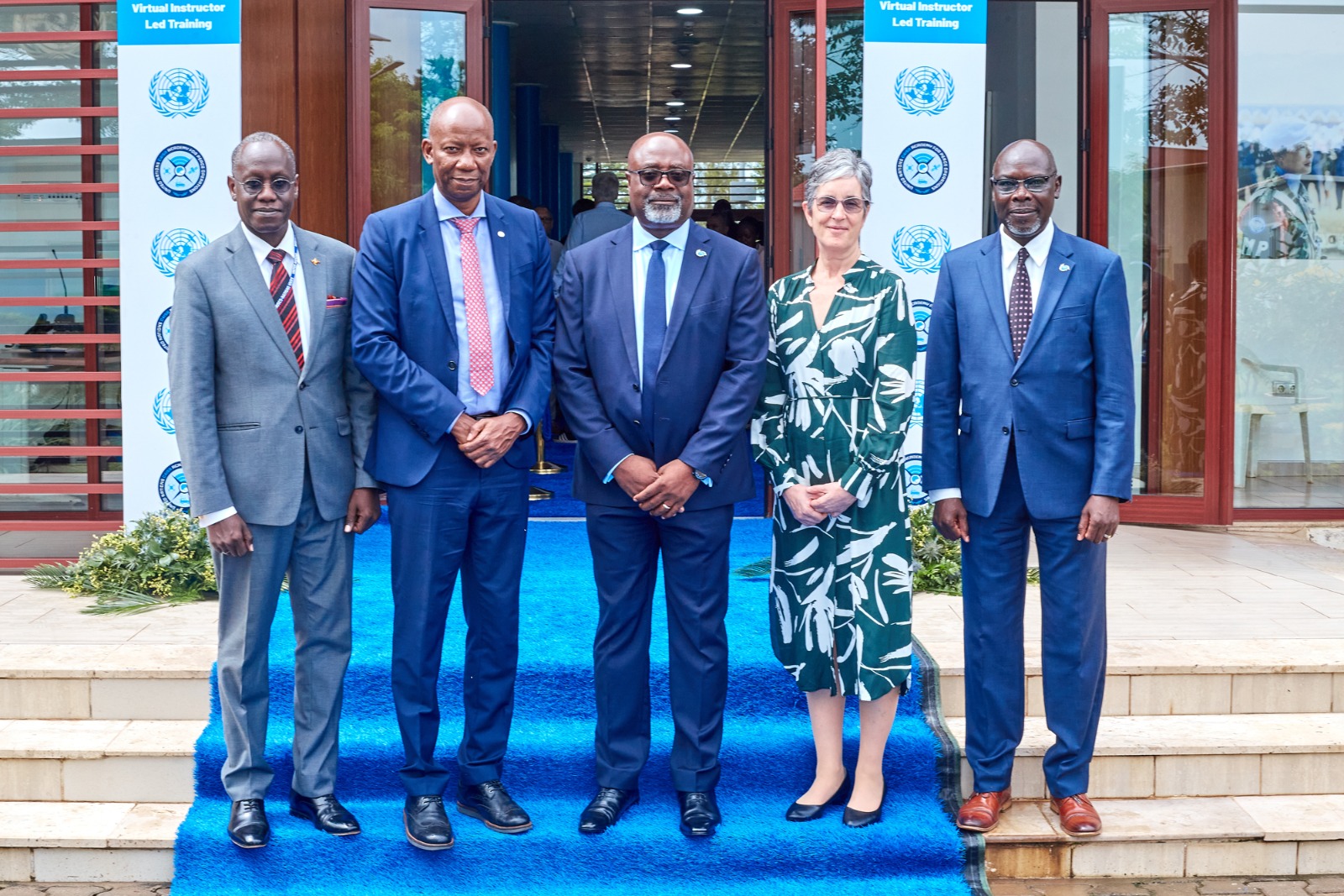
KAMPALA – The United Nations Academy for Peace and the North Atlantic Treaty Organisation (NATO) have commissioned the first virtual instructor-led training facility at the Regional Service Centre Entebbe (RSCE).
Virtual Instructor-Led Training (VILT) is a remote training class led by a facilitator through a virtual platform.
The hi-tech facility estimated at UGX 2.8b, allows real-time collaboration and offers accessibility to subject matter experts, creates an immersive learning experience, enables tracking and measurement of success, reduces costs, and increases training capacity.
Paulin D’jomo, the director for the UN regional service centre in Entebbe will strengthen the capacity of the United Nations (UN) in mounting and sustaining peace-keeping operations by enhancing operational performance, safety and security of peace-keepers.
D’jomo said the Regional Service Centre Entebbe serves over 16,000 staff members in peacekeeping and political offices across Africa.
“The centre is a modern approach to training where a facilitator utilises online platforms to deliver interactive and engaging training sessions,” he said, noting that the virtual instructor-led training creates a synchronous remote learning environment where participants can collaborate and learn in real time together.
The UN centre in Entebbe is a training hub for all UN peace operations and missions in Africa.
He said the VILT eliminates the need for in-person training, reducing the impact of travel restrictions and health concerns related to COVID-19. It allows training to continue seamlessly, ensuring personnel receive essential education without compromising safety.
Ms. Sherri Aker, the deputy dean of NATO in charge of the information and communication, underscored the newly commissioned facility’s importance and relevance, saying it enables tracking and measurement of success, reduces cost and provides accessibility to subject matter experts.
“The overall objective is that the United Nations Academy for Peace Operations will have a strengthened instructor corps, using tailored, up-to-date curricula, to train ICT officers from UN troop and police contributing nations,” she expressed.
Ambassador Philip Odida, the acting director for regional and international political affairs in Uganda’s foreign affairs ministry, expressed gratitude for the new developments at the UN base in Entebbe.
“It has evolved from its initial form as a pilot centre for shared services under the global field support strategy to a premium client-oriented fully-fledged client service centre that provides and stands for the needs of 62% of all United Nations peacekeeping and special political missions worldwide,” he noted.
He appealed for a long-term commitment that focuses not only on immediate training of the region’s peacekeepers but also works towards the overall sustainability of the initiative.
“Also by building and enlarging internal capacities by promoting self-sufficiency and aligning with the broader UN strategies for digital transformation and peacekeeping,” he stated.





